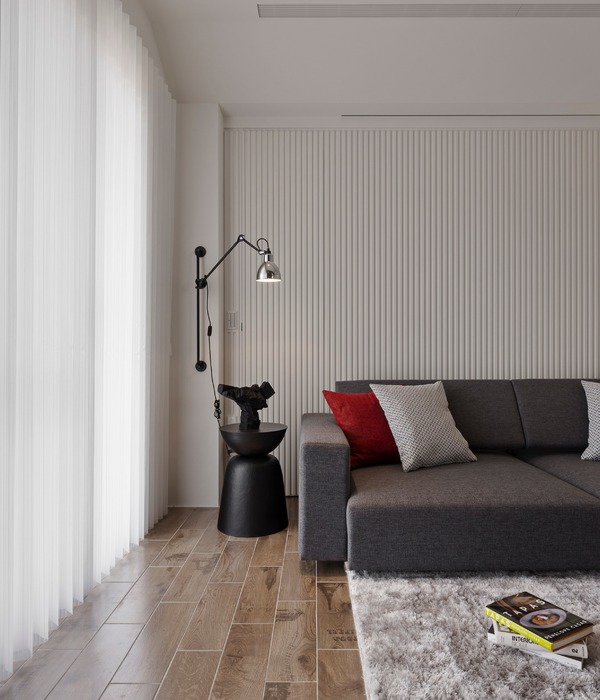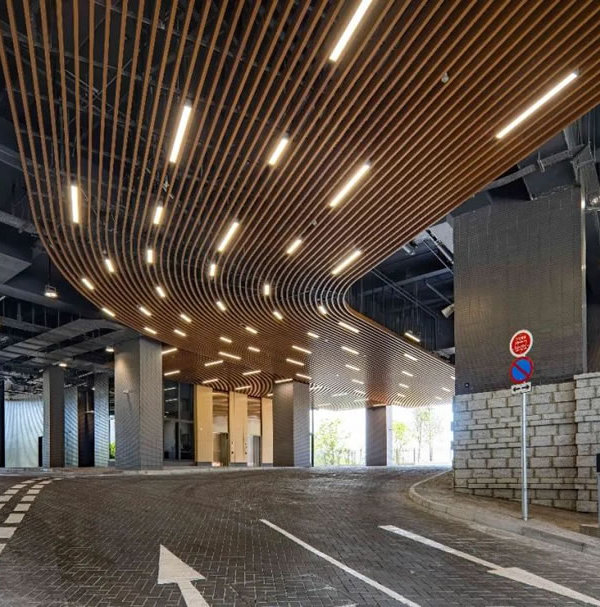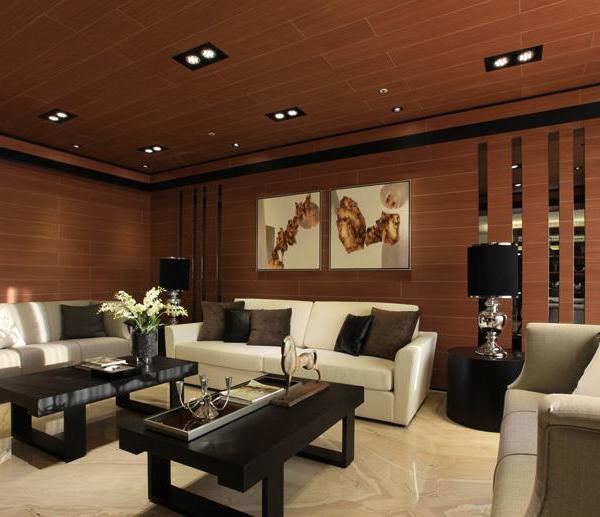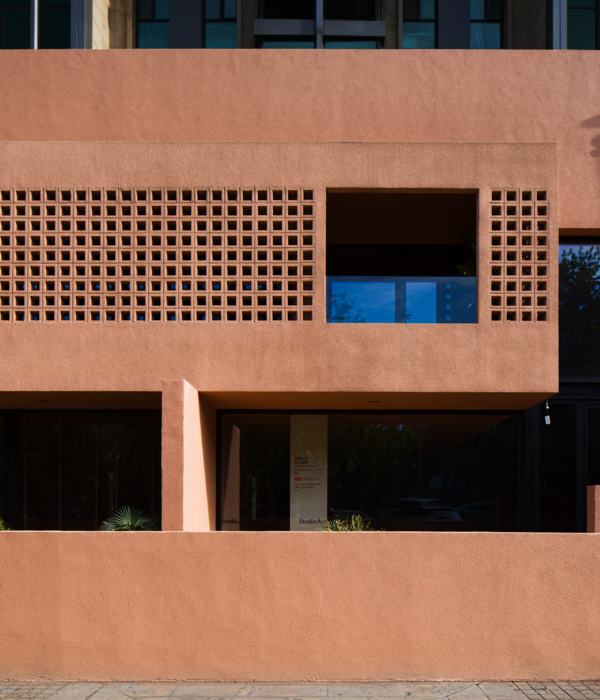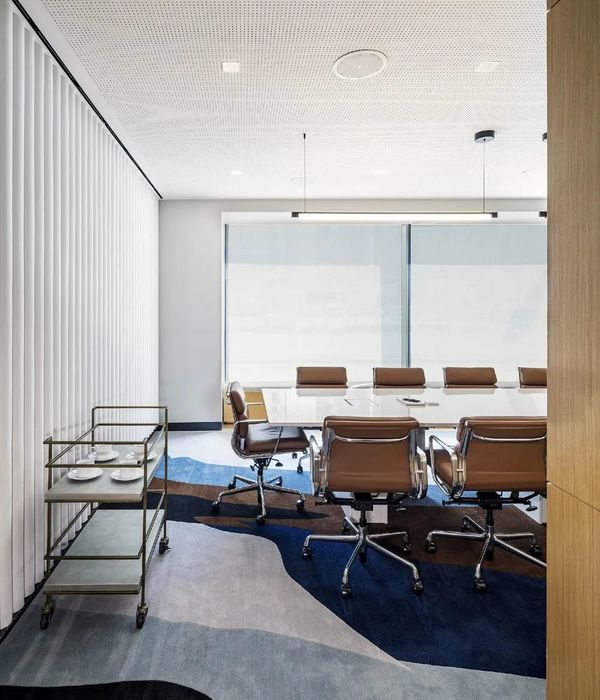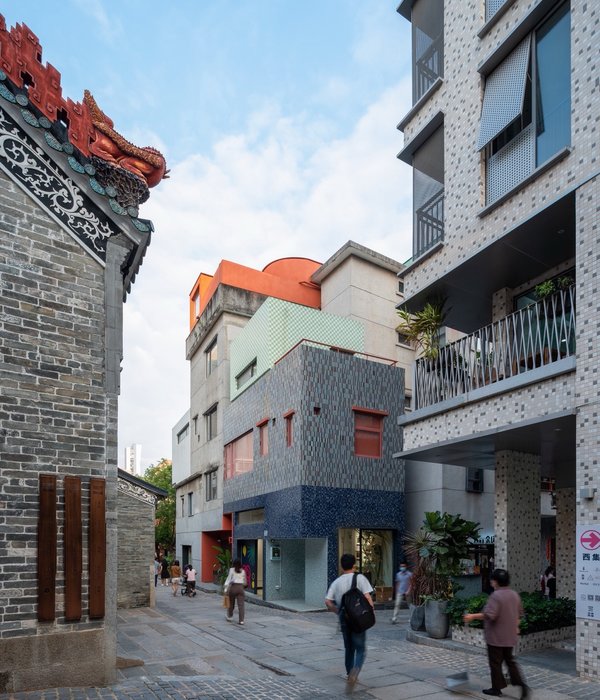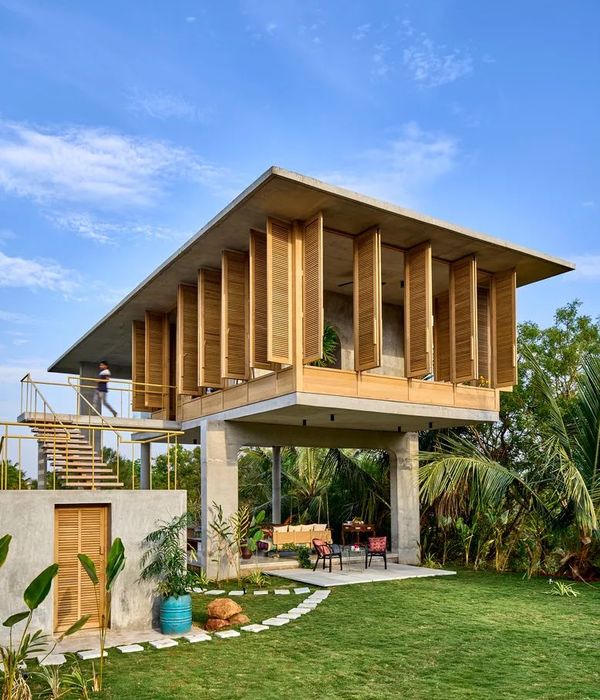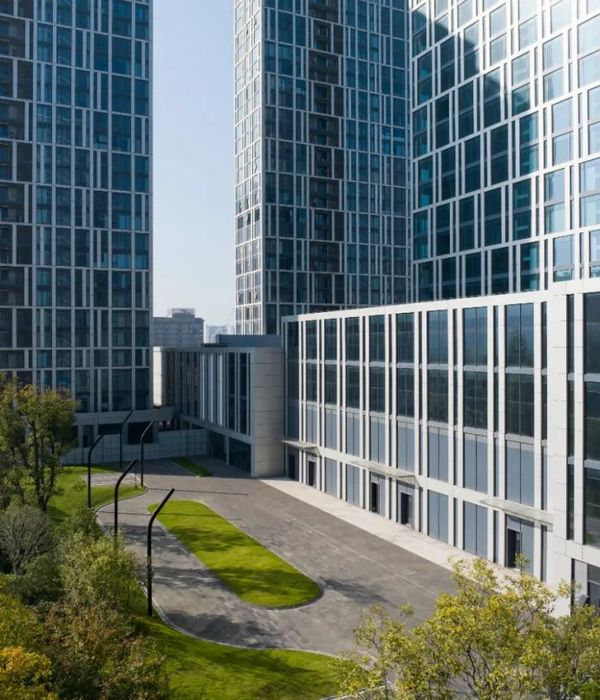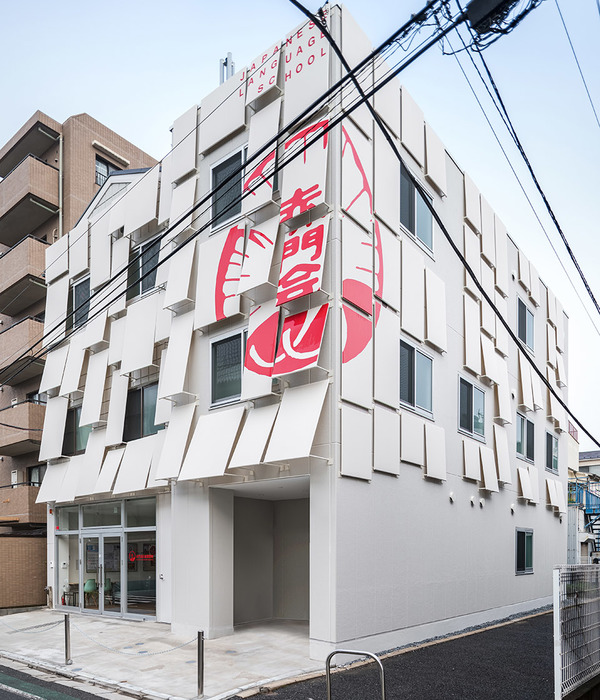该建筑是木建筑结构螺钉制造商SYNEGIC有限公司的新办公楼。项目位于日本宫城县,业主要求项目能够探索木质建筑的可能性。因此设计师团队搭建了18m超大木制桁架屋顶,并于其下创造出多样的混合型空间,使办公室内的员工得以互相交流。
▼项目概览,project overview © Hiroyuki Hirai
▼屋顶与地面连接处,points that the roof touch the ground © Hiroyuki Hirai
This architecture is a new office building of “SYNEGIC Co., Ltd” , a structural screws manufacturer for wooden buildings. It is located in Miyagi Prefecture ,Japan. The client asked us for advanced architecture that expands the possibilities of wooden structure. Therefore, we proposed a plan where various places are mixed under the roof of 18m wooden large span trusses so that the employees working in the office can be seen from each other.
▼巨型屋顶下开阔的办公空间,open office space under a giant roof © Hiroyuki Hirai
▼多样的混合型空间,方便员工互相交流,various mixed places that the employees can be seen from each other © Hiroyuki Hirai
▼不同区域的连接,connection of different areas © Hiroyuki Hirai
屋顶的框架仅在两端有四个支撑点与大地相连,其内部没有多余的柱状结构,从而形成了很大的空间。建筑结构随地形变化,屋顶高低起伏,地板错落有致。环顾其中,有时能伸手触摸到屋顶,有时则只能抬头欣赏建筑结构的精妙。
▼方案模型,model © UENOA
The roof frame touches the ground at four points on end sides, and there is no pillar inside, creating a large space. By following the topographical and moving floor level in a dynamic roof frame, a place covered near the frame as you touch it, or a place where you can feel the continuous of the frame appears.
▼室内屋顶下没有立柱,no pillar under the roof inside © Hiroyuki Hirai
▼室内分层高低错落,indoor layering staggered © Hiroyuki Hirai
▼二层走廊,corridor on second floor © Hiroyuki Hirai
▼屋顶高低起伏,某些部位伸手可及,dynamic roof frame that could be touched at some place © Hiroyuki Hirai
▼CLT垂直隔断墙,CLT vertical partition © Hiroyuki Hirai
层压木板制成的扁平桁架和正交胶合木板(CLT)制成的三角形面板组成了这个三维屋顶。层压木板宽度105,该模数是日本房屋中最常用的尺寸。采用CLT制做桁架能够避免复杂的连接加工和硬质接头,使得桁架可以工厂预切割后直接在施工现场采用螺钉连接。
▼屋顶结构,roof structure © UENOA
The three-dimensional roof shape is formed by connecting flat trusses made of laminated timber with a width of 105 (this module is most general dimention on Japanese houses) with triangular CLT panels. By adopting a CLT panel for fastening flat trusses, complicated processing of joints and joining by hardware are avoided, and it enables a rational method of factory pre-cutting and on-site screw joining.
▼木质桁架和CLT三角形板,wood trusses and triangular CLT panels © Hiroyuki Hirai
设计师将通常用于墙壁和地板上较为沉重的CLT轻巧的用在屋顶上,为CLT的使用提供了新思路。同时,办公室一楼的垂直承重隔断也采用了CLT。CLT的表面经过细致的处理,呈现出大理石一样的纹理。设计师尝试结合设计,同时考虑其可操作性来处理CLT材料的连接问题,而不是单纯采用硬质连接结构。因为这样的目标,建造过程中CLT材料消耗巨大,但最终可能在建筑中庭构建完整的巨大CLT墙体,更好的凸显其木材质感。基于对CLT材料未来的研究,设计团队在墙壁和屋顶的构建上已探索至极限。
▼建造过程,construction progress © UENOA
In addition, we can use the heavy CLT panels, generally used for walls and floors, lightly on the roof. That can be presented new ways of using CLT. The CLT is also used as a partition wall that bears a vertical load on the first floor. After thoroughly controlling the texture of the CLT surface just like a marble, we are trying to join screws with consideration of design and workability rather than general CLT hardware. Through these ambitious processes commensurate with the high cost of CLT, it was possible to realize a large CLT wall in the atrium that has no modules and emphasizes the wooden texture more. For the future of CLT that will progress, we think that these method on the wall and the roof have practiced one extreme point.
▼建筑夜景,building at night © Hiroyuki Hirai
▼办公室夜晚的灯光,light in office at night © Hiroyuki Hirai
▼概念草图1,concept sketch1 © UENOA
▼概念草图2,concept sketch2 © UENOA
▼设计推演模型,design model © UENOA
▼方案模型,model © UENOA
▼一层平面图,first floor plan © UENOA
▼二层平面图,second floor plan © UENOA
▼剖面,section © UENOA
▼屋顶结构,roof structure drawing © UENOA
Project architect : Fumie Horikoshi + Yoshinori Hasegawa / UENOA Structure engineer : Masahiro Inayama / Holzstr , Ken Kamachi / KMC Landscape Designer : Akihiko Ono / SfG landscape architects Photographer : Hiroyuki Hirai location : Miyagi Prefecture , Japan Use/Program : Office Site area : 2,407㎡ Build area : 633㎡ Total Floor area : 834㎡ Floors : 2F Structure: Wood and steel Completion time : design 2016.12~2017.12 / construction 2018.1~2018.12
{{item.text_origin}}

